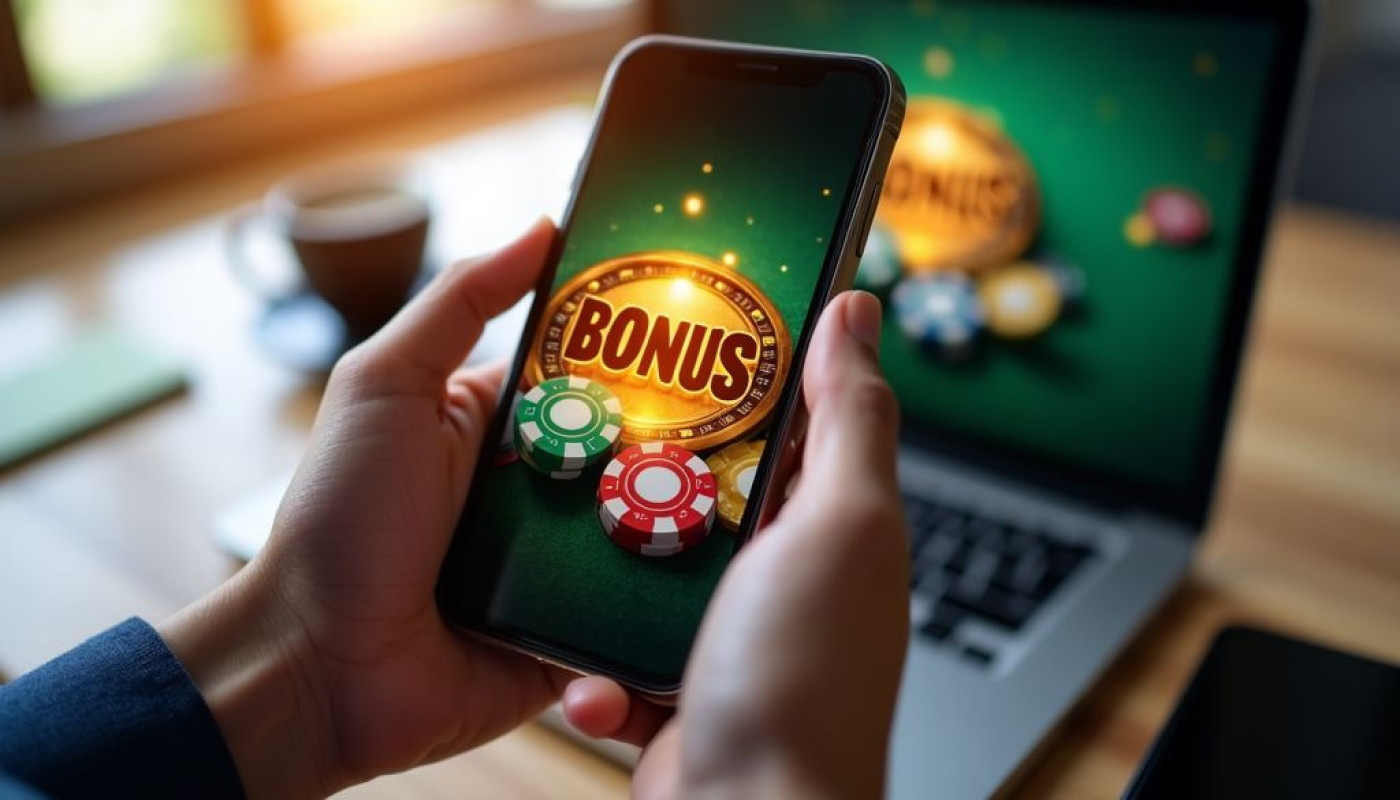Table of contents
Venture into the vibrant world of casino gaming, where the clink of coins and the whir of slots create an ambience of excitement and possibility. This enticing realm is not just about the potential for monetary gain; it's a psychological journey that each player undergoes, consciously or not. The psychological impact of casino gaming is a complex tapestry woven from threads of thrill, risk, and the allure of the unknown. Unpacking the player's mindset reveals a fascinating interplay between human behavior, emotion, and the psychological triggers that keep players engaged. As we delve deeper into the minds of those who frequent these gaming halls, we uncover insights into motivation, addiction, and the subtle psychological tactics employed by casinos to maintain allure. This exploration is not just for psychologists or industry insiders; it's for anyone intrigued by the human condition and the effects of gaming on our psyche. Continue reading to unravel the hidden layers that contribute to the magnetic pull of the casino experience and how it shapes the player's thoughts and behaviors.
Exploring the Thrill of the Game
The allure of casino games often lies in the pursuit of thrill-seeking, a phenomenon that taps into our innate desire for excitement and risk-taking. This attraction to the unpredictable outcomes inherent in gambling activities is known for stimulating dopamine release, a chemical messenger associated with pleasure and reward in the brain. Within the casino's vibrant atmosphere, players are continuously engaged through a psychological concept known as intermittent reinforcement. This variable ratio reinforcement schedule, wherein rewards are given at unpredictable intervals, fosters a compelling environment that is hard to resist. Adding to the player's enticement is the near-miss effect, a psychological trigger that reinforces engagement even when losing, by providing an illusion of imminent success. A psychologist specializing in gambling behavior would affirm that these sophisticated mechanisms interact to amplify the player's adrenaline and heighten their commitment to the game, ultimately influencing their mindset towards casino gaming.
Understanding Risk and Reward
The evaluation of risk and reward within the realm of casino gaming is a fascinating psychological process that involves a complex interplay of the brain's reward system and cognitive assessment abilities. As players engage with various games, they are constantly gauging the potential payouts against the likelihood of various outcomes, calculating what's known in behavioral economics as the "expected value". This term refers to the predicted return on a gamble, taking into account all possible outcomes weighed by their probabilities. But this rational appraisal is often skewed by inherent cognitive biases that color a player's judgment.
One such distortion is the gambler's fallacy, where players believe that past events can influence the likelihood of future occurrences, leading them to expect a win after a string of losses. Another is the optimism bias, which inclines individuals to overestimate their chances of success, a particularly seductive mindset within the tantalizing atmosphere of a casino. These fallacies can lead to an imbalance in the perceived risk-reward equation, where the allure of potential rewards trumps the rational assessment of risk involved.
Understanding the sway of these biases, casino design often aims to maximize their psychological impact. From game mechanics to atmospheric elements, casinos craft experiences that leverage these cognitive quirks, encouraging players to remain engaged and to keep playing. Sensory cues combined with the promise of instant financial gain are meticulously arranged to ensure that the house's odds are complemented by a player's psychological inclination to take one more chance. It's this precise orchestration of the gambling environment, alongside the brain's hardwiring for seeking rewards, that sustains the dynamic and complex psychological landscape of casino gaming.
The Social Dynamics of Casino Gaming
The casino environment is not just a playground of chance and strategy; it is also a hotbed of social interaction that can significantly affect player behavior. Within the bustling milieu of slot machines and game tables, the presence of other players alongside live dealers creates a unique social atmosphere. Such an environment fosters a phenomenon known as 'social proof,' where individuals are likely to emulate the actions, attitudes, and betting patterns of their peers, often subconsciously. The concept of groupthink, a term integral to the understanding of collective decision-making, takes on a pivotal role in this setting. It suggests that players might make decisions that are influenced by the group's ideas rather than their own logical determinations. This can be seen when a table celebrates a win, prompting others to follow the same bets or strategies in hopes of achieving similar results. An expert in social psychology or group behavior would provide the most authoritative insight into how these social dynamics can influence the psychological landscape of casino gaming, shaping everything from the risks an individual is willing to take to the enjoyment they derive from the game.
The Lure of the Jackpot: Chasing Losses and Escalation of Commitment
The psyche of a casino player is often caught in a whirlwind of hope and despair, particularly evident when individuals fall prey to the phenomenon of "chasing losses." This behavior, where players continue gambling with the aim of recouping previous losses, is a common psychological pattern that can lead to an "escalation of commitment." The "sunk cost fallacy" plays a pivotal role in this scenario, as gamblers irrationally throw good money after bad, mistakenly believing that further investment will eventually lead to a win. This fallacy blinds players to the reality that past losses are irrecoverable, and further bets are independent events with no guarantee of a positive outcome.
Another psychological concept at play is "loss aversion," a principle suggesting that the pain of losing is psychologically twice as powerful as the pleasure of winning. This drives gambling behavior toward risky bets in desperate attempts to avoid the sting of loss. Additionally, players may experience "cognitive dissonance" when their actions do not align with their understanding of risky gambling, leading to an uncomfortable psychological state often resolved through continued gambling to justify previous decisions. Experts such as those in behavioral finance or clinical psychologists specializing in compulsive behaviors would assert that understanding these psychological traps is vital in moderating one's approach to casino gaming.
In an industry where the house always has the edge, it's critical for players to recognize these mental patterns that can lead to detrimental gambling behavior. Whether it's a high-stakes game or a casual session, play now at National Casino might be an option for those looking to responsibly enjoy the thrill of the gamble, keeping in mind the risks and psychological factors involved.
When Fun Becomes Problematic: Recognizing Addiction
As players navigate the thrilling twists and turns of casino gaming, there is an ever-present risk that what starts as an amusing pastime can escalate into gambling addiction, also known as pathological gambling. This transition is marked by clear signs of addiction, which can include an increasing preoccupation with gambling, a need to bet larger amounts of money to achieve the same level of excitement, and repeated unsuccessful efforts to cut back or stop gambling. A deeper understanding of the psychological factors underlying such compulsive behaviors is essential in addressing this issue.
One such psychological factor is 'escape seeking', where individuals may turn to gambling as a way to cope with stress or to distract themselves from daily life challenges. The lure of the casino can become a sanctuary for those looking to escape, manifesting as a reliance on the highs of the game. Another contributing condition is 'reward deficiency syndrome', where the gambler's brain may not be sensitive enough to the natural rewards of everyday life, propelling them to seek the intense gratification that gambling can provide.
The key to mitigating the risks associated with these psychological factors is early recognition and proactive strategies. This could involve setting strict limits on time and money spent on gambling, seeking alternatives for stress relief, and maintaining a balanced lifestyle. When gambling habits cross the threshold into addiction, it becomes imperative to seek professional help. A clinical psychologist with expertise in addiction or a mental health counselor specializing in gambling issues can offer the most authoritative guidance and support in developing a tailored plan to combat the destructive patterns of pathological gambling.
On the same subject













































